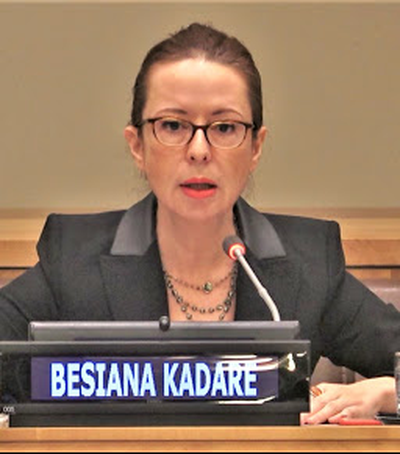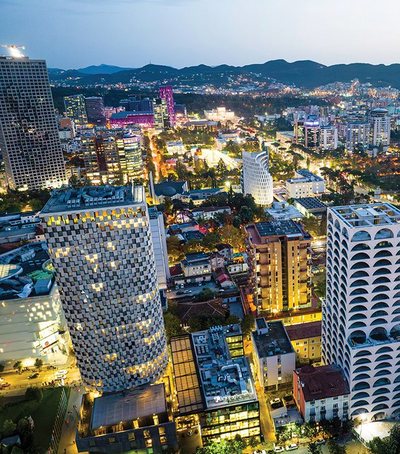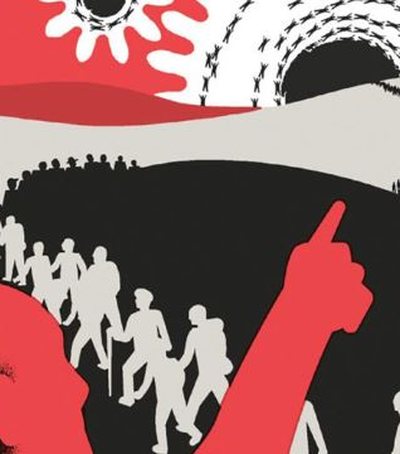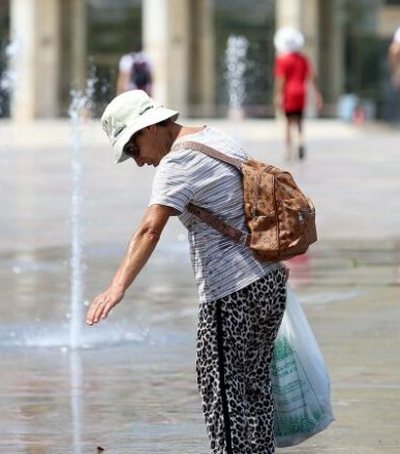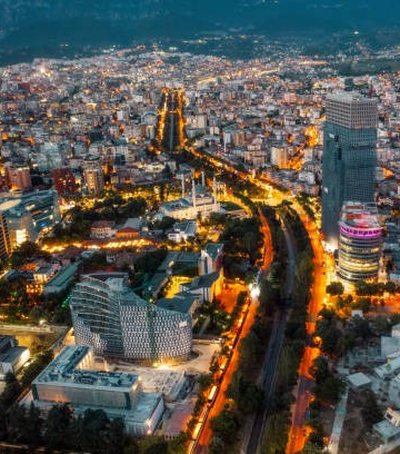
Today is March 8, which in many countries is celebrated as the International Women's Day. This is the day when women are known for their achievements, regardless of ethnic, ethnic, linguistic, cultural, economic or political divisions. This date originates from labor movement activities at the beginning of the twentieth century in North America and across Europe, where women protested for the protection of their rights.
In Albania, many things have changed for good, but nevertheless, women continue to be paid less than men, are less represented in business and management levels, while they have been better off in politics. The good news is that women at managerial levels are paid more than men.
Women are paid 10.5% less than men, but lead in the direction
Although they may work alike, women in Albania are generally paid less than men.
According to the latest INSTAT data, referring to 2017, the gender pay gap is 10.5%, which means that in total, women in Albania are paid 10.5% less than men. Compared to the previous year, when it was 11.4%, the gender gap was reduced easily. The average salary of women in the country is 46 thousand lekë and male 51.3 thousand lekë.
According to INSTAT, women are paid 15-30% less than men in these professions: Physics, math and engineering specialists; Employees in industry; Health specialists; Employees of personal and defense services; Legal, social, cultural, law and other specialists; Specialist health assistants, etc.
The three professions where women are paid 10-30% more than men are: Employees in electro-tech professions, Administration and Business Assistants, Administrative and Commercial Managers.
In absolute terms, the profession group where women are paid more is "administrative and commercial management", which in the year had a monthly salary of 156,054 leks, the highest of all other professions, compared to men, making women belonging to this category paid most in the country. This salary is much higher than that of men, who are paid an average of 121,053 lek for the same profession, or about 35 thousand lek (30% less) than females.
In the group "Production Leader and Specialized Services" (second in the list), women have an average monthly salary of about 89,000 ALL, but paid 13% less than men of the same category.
The third most paid-for-women profession is as a leader in the state. In the category "Lawmakers, Senior State Administration Officers and Executive Directors", the average salary of women is about 85,000 ALL, but remains 4% lower than the male.
The profession where women get far less than men is "Physics, Mathematics and Engineering Specialists in Physics", where they spend on average about 60,000 leks a month or about 36,000 leks, or 37% less than men (for salaries by profession and the female-male difference see the table at the bottom).

The largest entrepreneurs in the country
Monitor publishes annually the ranking of the largest entrepreneurs in the country according to annual turnover and earnings.
By 2017, the largest female entrepreneur in the country was Vilma Nushi, who replaced Anisa Skendaj, who for three years stood at the top of the list of largest female entrepreneurs, according to the annual turnover, sold the shares he owned Info Telekom (60%), DIGICom (40%) and Professional Marketing Albania (30%) to her partner, Marin Gjonaj.
Mrs. Nushi, one of the first entrepreneurs in the country, floated in 2017 through its Marketing & Distribution (M & D) and 3P Life Logistic businesses, and earned $ 3.2 million.
Secondly, they are women of the Hoxha family, which have 100% stake in Top Channel, the largest television in the country by income, 51% of Digitalb, and 49% of Valtelina coffee company shares and have shares in two other businesses, Top Albania Radio and VGA. In total, the revenues of 5 companies were 7.2 billion ALL (57 million EUR), of which 73% from Digitalb and 19% from Top Channel. According to the respective percentage of shares, the Hoxha family's profits were 127 million leks, or about 1 million euros.
In third place is Ina Topalli, which owns 49% of Global Resource Trading, with revenues of 6.5 billion.
Melika Leka, with the sausage processing company, EHW, ranks fourth in 2017, among the largest entrepreneurs (entrepreneur Luan Leka, in April 2016, passed a 33% share of her husband's share, according to statements at the National Center business). Since 2016, EHW has declared a consolidated balance sheet, together with Qafa Shtama and Conad Albania. In 2017, the company's turnover was about ALL 5 billion and profits amounted to ALL 451 million.
Merita Sheqi is today the entrepreneur of the country's largest pharmaceutical products trading company, Rejsi Farma, and a fifth of female-run companies, which shares ownership with her husband. The company has been growing steadily since 1999 when it started its activity, becoming a model in the pharmaceutical market. In 2017, the company had an annual turnover of ALL 3.6 billion, while profits increased to around 200 million ALL (about EUR 1.6 million).
According to earnings, based on the official statements in the 2017 balance sheet and the respective percentage of shares, the most profitable entrepreneur in 2017 was Vilma Nushi, with about 3 million euros (before taxes).
Second place is Arta Gurabardhi, which owns 40% of Abkons' shares, with advisory services, which is TAP's subcontractor. Earnings, according to shareholding, were about EUR 2.1 million before taxes. Abkons was one of the most profitable companies in the country in 2017, with a 41% return rate (pre-tax income).
Ownership women dominate in small businesses
In 2016, the percentage of female owners / administrators is 26.8%, according to INSTAT (the most recent available data). The percentage of women owners or administrators in small enterprises (1-4 employees) is higher than in other categories.
From 2006 to 2016, the percentage of female owners / managers has increased in all categories, with the largest increase in enterprises with 1-4 employees.
Meanwhile in the category of businesses with 5 to 9 employees, we have a nearly double the number of women administrators or owners in the last five years. The number of women owners or administrators in businesses with economic activity has decreased by 3% in the last five years, while the services sector has increased by 4%.
In 2016, according to the distribution of enterprises with owners or managers of women with districts, we note that in the Qark of Tirana, we have the largest concentration of enterprises. Enterprises owned or managed by men in 2016, more concentrated in Tirana Region, again dropped from 39.3% to 27.93%, there was also a decrease of about 3% for women in Tirana District compared with 2011.
New enterprises in 2016 are mainly concentrated in Tirana. This applies both to enterprises owned or run by women and men. Kukës remains the lowest district with new women's owners / administrators for 2016.
Growing, interest on loans
According to INSTAT, the Bank of Albania's credit registry data for the 6-year period (2011-2016) reflect an upward trend for borrowing for both sexes, while maintaining almost the same differences between them. The number of women borrowing is almost half of men, as well as the average amount of credit received by a woman is half of the average amount received by a man
The Bank of Albania data on the number of borrowers, the credits received and their total value by gender indicate that in 2016 the number of women borrowers has increased, while the loans they receive seem to be of relatively high value small. Borrowing men have experienced a decline during 2016, but again, they continue to dominate the number of loans received and higher than women.
In another report by the International Monetary Fund, women are generally correct in lending to Albania in relation to men.
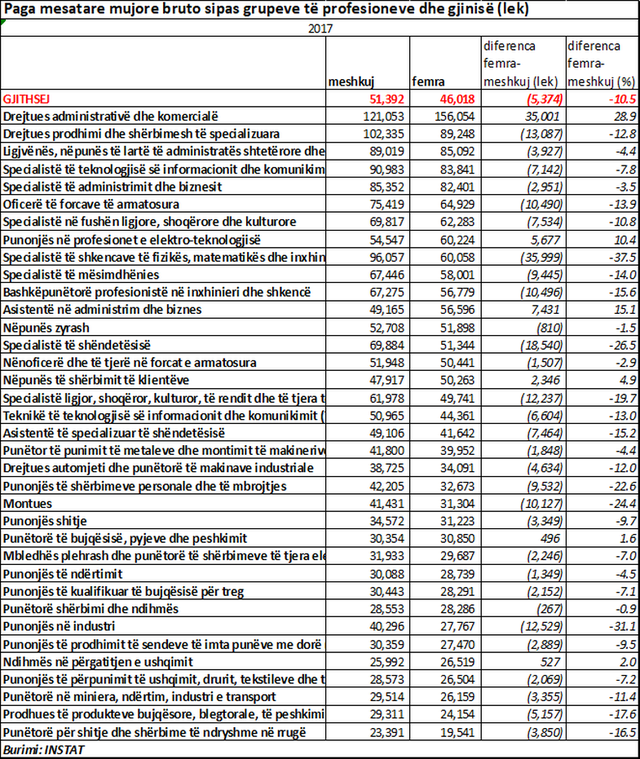
Women prevail in politics
If there is an area where women have increased their representation, it is in politics. In the current government, as ever, out of 14 ministries, eight of them are headed by women: Olta Xhaçka (Minister of Defense); Belinda Balluku (Minister of Infrastructure and Energy); Besa Shahini (Minister of Education, Sports and Youth); Etilda Gjonaj (Minister of Justice); Anila Denaj (Minister of Finance and Economy); Ogerta Manastirliu (Minister of Health and Social Protection); Elva Margariti (Minister of Culture); Elisa Spiropali (Minister of State for Relations with Parliament).
Source: Monitor

